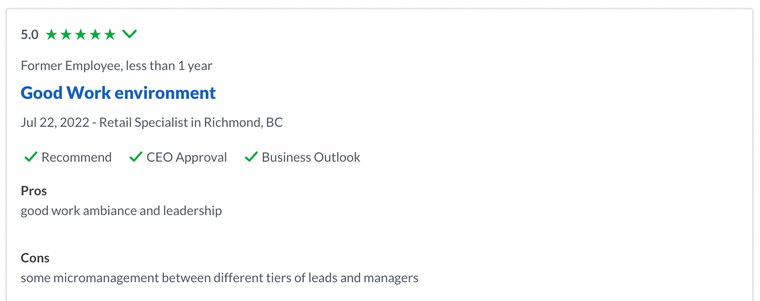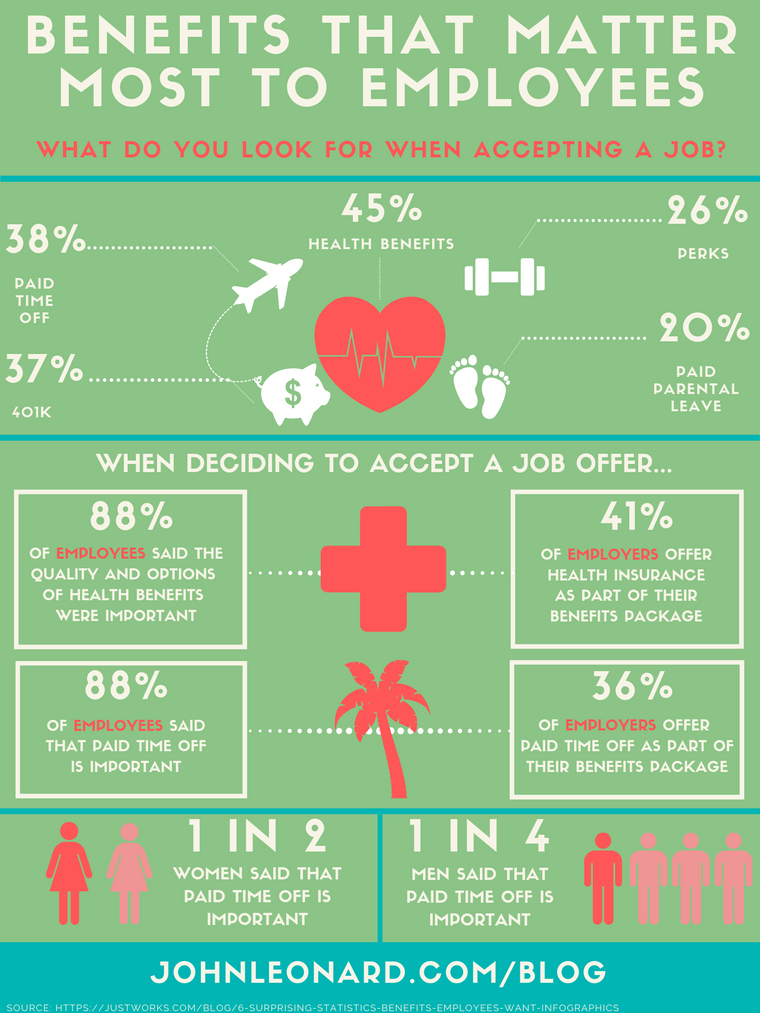
Your Guide to Work-Life Balance

If you feel like you’re juggling too many responsibilities all the time, it you may need a guide to work-life balance. And if you think things may not be quite right, you’re not alone! Research shows that over half of American employees feel as though their work-life balance isn’t right.
With the cost of living on the increase, and post-pandemic work patterns still in a state of flux, it can be hard to figure out how to solve that problem. With workers everywhere struggling to keep up with rising costs and changing workplace norms, taking a step back to evaluate things can feel impossible. It’s easy to tell yourself that it will get better on its own as everything settles down again.
But can you afford to wait? A poor work-life balance can lead to exhaustion and burnout, leaving you in serious mental distress. The time to figure out your work-life balance is now, and we’re here to help.
In this article, we’ll cover the following points:
- What work-life balance actually is
- Why it’s important
- How you can look for work-life balance when job-searching
- How you can find a better work-life balance in your current role
What is Work-Life Balance?
Work-life balance, in basic terms, is exactly what it sounds like: it’s the balance we all try to strike between work and non-work activities.
But for modern workers, it’s a little more complicated than that. If you have a family, does looking after your kids in the evening count as work or non-work time? What about cleaning, tidying and other household chores?
Some of the tasks we do outside of work are necessary, but they don’t necessarily nourish or enrich us as people. In an ideal world, the ‘life’ element of work-life balance would involve things that make all the hard work worth it – not different, additional work that doesn’t even earn us a wage. As you might expect, it can be harder for working women and parents – especially single parents – to figure out a sustainable work-life balance.
And no matter your personal situation, finding out your own ideal work-life balance can be tricky. It’s not as simple as taking up yoga or going for a jog. If your balance is already off, finding the energy to explore what makes you happy in your non-work time can be almost impossible.
When you’re in that situation, struggling to grasp what it actually means for you, it’s easy to treat work-life balance as an empty buzzword. But the truth is that we all need to find our balance, so we can give our best at work and keep our mental health on an even keel.
Why Work-Life Balance Matters
Work-life balance benefits everyone, whether you’re an employee or a manager.
Employees who feel happier and more fulfilled overall are more productive, more creative, and less likely to look for more satisfying work elsewhere. This means that companies prepared to respect work-life balance see substantial improvement in their bottom line. They don’t have to invest in searching for new talent when they’re already retaining good workers who are happy to show up and get things done.
On the other hand, poor work-life balance can cost companies a great deal. Overwork and stress can lead to burnout, which can lead to absenteeism, reduced productivity, and high staff turnover. The financial costs involved are obvious – but beyond that, a demoralized workforce can do serious damage to a company’s brand or reputation over time.
For employees, too, the costs of burnout can be serious. Mild cases of burnout can put strain on your relationships, whether personal or professional, and leave you exhausted all the time. More serious cases can result in chronic illness, mental health difficulties, or even – in extreme situations – death.
That’s why it’s important to strike the right balance between your job and the rest of your life. After all, what’s the point of working hard if you’re too tired or unwell to enjoy the results?
How to Look for Work-Life Balance While Job-Searching
If you’re on the hunt for a new job, make sure you take work-life balance into account! Here are some easy ways to find a job that will help you integrate your personal life with your working life, and help you mitigate the risk of burnout or fatigue.
Do Your Research
You don’t have to wait until the interview to get a feel for a workplace’s particular culture. Thanks to sites like LinkedIn and Glassdoor, it’s easier than ever to look into a potential workplace online before you even send off your application.
Look at reviews left by previous employees, and pay special attention to their comments about the company culture. Do they report being able to leave work on time most days? How accessible were they expected to be on weekends and vacation days?

Obviously you can’t take every review at face value. It’s far from unheard-of for former employees to lash out at their past employers on the way out, and you need to consider that not everything you read online is verifiably true. On the other hand, checking out a company ahead of time can give you a broad sense of whether its values align with your own.
And even if you can’t trust the reviews, information about salary ranges, benefits and company policies can be much easier to verify. Look on the company website, check out what they offer their staff, and make your decisions accordingly.
Ask Questions
It’s always a good idea to ask questions when you interview for a new role. It shows that you’re engaged with the hiring process, that you take the initiative, and that you’re aware of the norms in your industry. The right questions can make a strong impression on a potential employer.
But asking questions at interview is also a way for you to figure out whether a company is a good fit for you. Remember, an interview is a two-way street! You’re interviewing the company just as much as they are interviewing you.
Here are some questions you could ask to get a feel for the work-life balance available at a company:
- What are the expectations around answering emails during time off?
- What flexible working options are available to employees?
- How does the company measure employee performance?
- How closely does management work with employees?
- What are your favorite things about working here?
These questions will hopefully yield answers that will tell you a lot about work-life balance at a company. Knowing how highly a company values flexibility, boundaries and managerial support can be revealing.
Listen to Your Gut
We’ve written elsewhere about identifying red flags in a potential workplace. That advice also applies here! One of the smartest things you can do when attending an in-person interview is look around, pay attention, and get a sense of the atmosphere.
If the people working seem tired, uncomfortable, uncommunicative, or disproportionately serious, that could be a sign that they aren’t happy in their workplace. Likewise, if your interviewers are evasive when you ask questions about work-life balance, that could be cause for concern. It can be hard to quantify a bad feeling, but your instincts are there to protect you; if you aren’t sure about a work environment, trust that sense of doubt.
By the same token, if people seem happy and comfortable at work, that’s a good sign! It may not be a guarantee, but it can be a good indicator that a workplace is invested in supporting its employees.
Investigate Benefits
If your interview is going well, there’s nothing wrong with asking about benefits! In fact, it can set you up well for negotiation should you receive an offer, and it can give you a clear sense of how highly your prospective employer values staff wellbeing. Here are a few things to look out for:
- Generous and flexible PTO policies
- Flexible and understanding sick-leave policies
- Remote or hybrid working, if your goal is to work from home
- Lifestyle perks like office stipends, membership discounts, and bill reimbursement
If there are any other benefits or perks that you know will make you happier in your work, this is the time to raise them. You can also look into benefits ahead of time, whether on review sites or on the company website.

Finding Better Work-Life Balance
If you aren’t job-searching right now, don’t despair! There are still ways you can work toward improving your work-life balance. Here are just a few to get you started.
Work With the Brain You Have
Do you work best in short bursts, or over long, uninterrupted periods? Do you concentrate better in silence, or with a buzz of background noise to help you focus? Do you find it easier to write emails than to have a conversation on the phone?
Knowing these things about yourself can help you set up your working life in a way that works for you. Pushing yourself to work in ways that aren’t comfortable or intuitive can add to the mental load of working in a way that isn’t sustainable over time. Believe it or not, a few small adjustments to your working patterns can be the key to avoiding a serious case of burnout.
- Use productivity hacks like the Pomodoro method to break up your work day into manageable chunks
- If the background noise of the office is driving you crazy, talk to management about using your headphones at your desk instead.
- You probably can’t avoid every phone call, but you can at least redirect your colleagues into contacting you by email in the first instance instead.
We’re all wired differently, and there’s no one-size-fits-all solution to comfort or productivity in the workplace. Work toward a set-up that suits you, and you’ll be surprised at how much happier you feel.
It might be the case that, after you've figured out the best way for you to work, you've realized that your current job doesn't align with your brain. Maybe you need the flexibility that working remotely can bring. Maybe you like working in an office, but your current office is too loud and busy for you to properly focus. If that's the case, it might be time to think about your biggest career accomplishments and update your resume to find what you need.
Set Consistent Boundaries
You might have heard of Parkinson’s Law – work expands to fill the time allotted for its completion. What this means for you is that working later, or working through lunches, isn’t going to get the work done faster. It’s just going to create room for even more work.
Set a clear time at which work ends for the day – and then commit to it. If you’re struggling, try scheduling something directly after work, so you can’t stay any later without disrupting your plans. Remember that work includes checking emails, or anything else you can do remotely from a device – so power down your company phone, too.
Likewise, try to set aside time every day to eat a proper lunch or take a break away from your desk. Getting out of the office forces you to down tools and reset your thinking, while nourishing yourself properly can set you up for a great afternoon. Either way, you’ll feel refreshed and ready to start again when it’s time to come back.
Use Your PTO
This one might seem obvious – what else is PTO for? But in 2018, over half of Americans reported having unused vacation days. If you’re not making the most of your company’s PTO policy, now is the time to change your approach.
The rise of working has complicated many workers’ approach to PTO, and made it more viable for employees to work through illnesses or stresses that would otherwise have kept them out of the office. But it’s important to remember that time off – whether for sickness, vacation, bereavement or otherwise – is a form of compensation for your work. You owe it to yourself to use it when you need it.
So book that vacation, take that sick day, and stop pushing yourself to be present in the office at the expense of your health and wellbeing. In the long run, you’ll be happier and more productive.
Communicate
If you’re afraid that you aren’t doing enough at work, it can be much easier to fall into bad habits when it comes to work-life balance. Fortunately, there’s an easy fix: talking to your manager.
Don’t be afraid to ask for input on your performance, or for any advice on how to do better. Getting that perspective from someone else can give you much clearer insight into how hard you’re working. It can also give you valuable insight on how to prioritize your time at work, so you’re working smarter rather than just harder.
A good manager will be proactive about this, and will make an effort to check in with you every so often. If you need more input, though, there’s no shame at all in asking! Most managers will be happy to advise.
Even if you absolutely love your job, it's still important to carve out time for your own life. With a few adjustments, a better work-life balance can make it so that you feel happier day-to-day, and can even improve your work performance.

Written By
Waverly March
Content Writer + Resume Expert
Waverly is a freelance writer, former HR officer and current international traveller. They believe in doing your research, showing up prepared, and bringing your passions with you to work. They've helped countless job seekers create better resumes and cover letters to improve and grow their careers.

If you feel awkward our unsure about how to ask about benefits during an interview, fear not -- we've put together the ultimate guide.
June 3, 2022
Read Post

Content Writer + Resume Expert

We'd all love to make more money, but what can you actually do, right now, to get there? Find out in our guide!
June 1, 2022
Read Post

Content Manager & Resume Expert

If you dread the question "what are you salary expectations?" in each interview, try getting ahead of the game. Learn how to ask about salary in a job interview here!
May 25, 2022
Read Post

Content Writer + Resume Expert
Copyright ©2025 Workstory Inc.